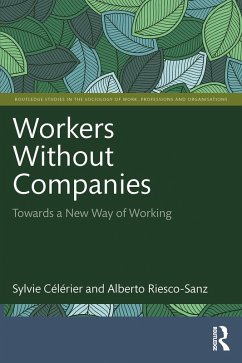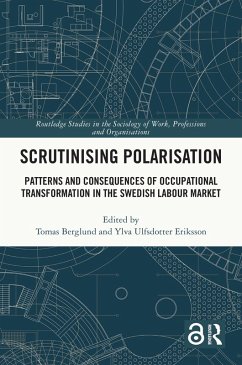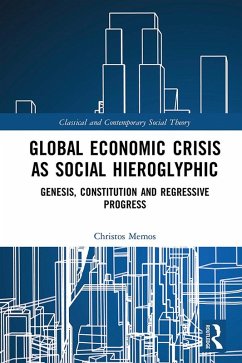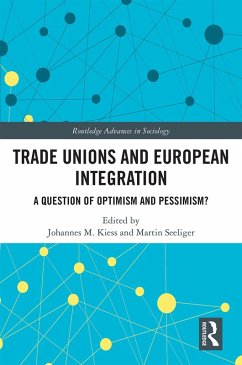
Agrarian Crisis in the United States (eBook, PDF)
Pathways for Reform
Versandkostenfrei!
Sofort per Download lieferbar
39,95 €
inkl. MwSt.
Weitere Ausgaben:

PAYBACK Punkte
20 °P sammeln!
From fragile, corporate-controlled supply chains breaking down, to millions of already hyper-exploited farmworkers risking their lives in the fields without basic personal protective equipment, the COVID-19 pandemic made it painfully obvious that US agriculture does not work.Agrarian Crisis in the United States: Pathways for Reform situates the many food system problems that the COVID-19 pandemic laid bare in historical context across four key policy areas, namely, in land, labor, markets, and the environment. In applying and building from the work of Jürgen Habermas, Agrarian Crisis in the U...
From fragile, corporate-controlled supply chains breaking down, to millions of already hyper-exploited farmworkers risking their lives in the fields without basic personal protective equipment, the COVID-19 pandemic made it painfully obvious that US agriculture does not work.
Agrarian Crisis in the United States: Pathways for Reform situates the many food system problems that the COVID-19 pandemic laid bare in historical context across four key policy areas, namely, in land, labor, markets, and the environment. In applying and building from the work of Jürgen Habermas, Agrarian Crisis in the United States highlights how deep-seated problems concerning systemic racism, economic inequality, and political legitimacy endanger the US food and farm system's future.
Besides analyzing crises, it presents solutions that would make agriculture in the United States more just and resilient through the implementation of certain communication and policy strategies. Its original argument, as well as a novel set of remedies, will appeal to scholars and activists with interests in agrarian studies, environmental policy, and social movements.
Agrarian Crisis in the United States: Pathways for Reform situates the many food system problems that the COVID-19 pandemic laid bare in historical context across four key policy areas, namely, in land, labor, markets, and the environment. In applying and building from the work of Jürgen Habermas, Agrarian Crisis in the United States highlights how deep-seated problems concerning systemic racism, economic inequality, and political legitimacy endanger the US food and farm system's future.
Besides analyzing crises, it presents solutions that would make agriculture in the United States more just and resilient through the implementation of certain communication and policy strategies. Its original argument, as well as a novel set of remedies, will appeal to scholars and activists with interests in agrarian studies, environmental policy, and social movements.
Dieser Download kann aus rechtlichen Gründen nur mit Rechnungsadresse in A, B, BG, CY, CZ, D, DK, EW, E, FIN, F, GR, HR, H, IRL, I, LT, L, LR, M, NL, PL, P, R, S, SLO, SK ausgeliefert werden.













